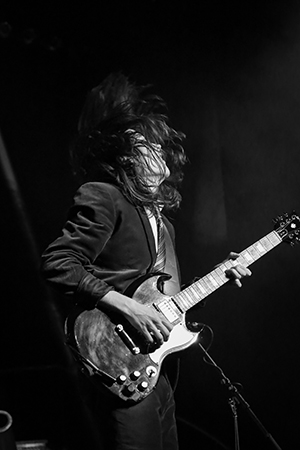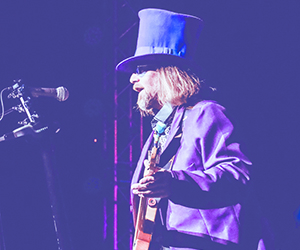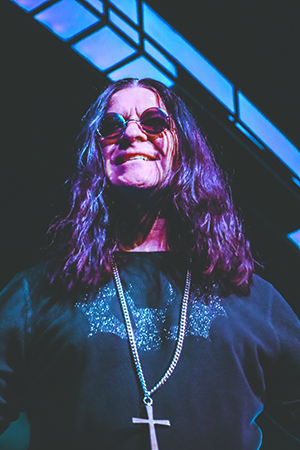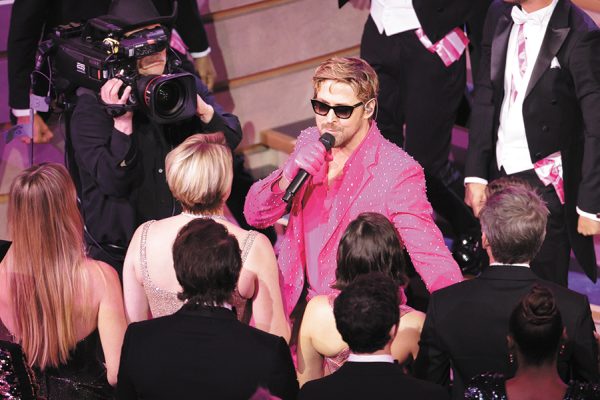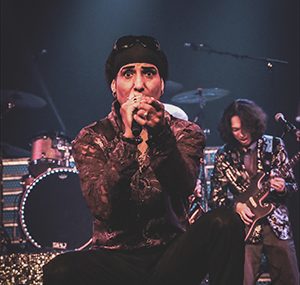‘Girls’ offers thoughtful portrayal of young women
April 9, 2015
Lena Dunham’s “Girls” has garnered more than its fair share of backlash in the short time that has expired between its initial premiere in April 2012 and the season four finale on March 22. While I have been a staunch supporter of the gutsy HBO drama about four 20-somethings in postrecession New York City, this latest season has solidified the inkling I’ve had all along: that this is the most progressive, emotionally complex and important TV series on cable today.
While the reasons for this would fit more comfortably between the covers of an Encyclopedia Brittanica, in honor of the format of the show itself, I will keep things short and sweet. The following is a list of the four main reasons that Dunham and executive producers Judd Apatow and Jennifer Konner have truly found their stride in the latest season, and why it would be remiss to not leap onto the “Girls” bandwagon as soon as possible.
1) The real sex. “Girls” is often heralded as this generation’s “Sex and the City,” but that is a serious insult to the gargantuan lengths Dunham and company have gone to provide realistic, diverse and complex representations of sex and sexuality. It shows not only the hot and sexy moments but also the pauses, the transitions, the communication or lack thereof and the consequences. All of this provides a much needed contrast to the main source of sex education these days: pornography, where much of what we see is demeaning, one-sided and borderline violent.
The show also fearlessly embraces bodies of all sizes and shapes and women and men of varying degrees of experience from Shoshanna Shapiro (Zosia Mamet) the virgin in season one to Hannah who shared an erotic weekend with a total stranger in season two. We can also thank Dunham for helping to contribute to the ever increasing amount of female focused sexual encounters that have been creeping their way into pop culture.
2) The real issues. When “Girls” first premiered, Dunham’s compulsive nudity and “nonstandard” body type was just about the only thing capable of creating discussion. However, the show has gone on from there to tackle some of the most controversial and important issues of our time. Episode six of this season showed Adam Sackler’s (Adam Driver) new love interest MimiRose Howard (Gillian Jacobs) casually informing him that she could not go running because she had an abortion the day before. In a behind the scenes clip, Dunham told HBO:
“I liked the idea of showing someone who was getting an abortion and wasn’t tortured by it. So often when we see a situation of a woman choosing to terminate a pregnancy on television it comes with so much pain and angst, and I liked the idea of a character who goes so far in the other direction that it’s almost confusing for the audience.”
While the episode was in fact jarring and almost uncomfortable to watch, this is actually a very positive thing. New perspectives, such as this, force us to confront our own views and ultimately grow as a culture. This season also featured Hannah Horvath’s (Lena Dunham) father Tad Horvath (Peter Scolari) coming out as gay after over 20 years of marriage to Hannah’s mother (Becky Ann Baker). The subsequent emotional fallout between the spouses and its affect on Hannah’s already fragile identity was documented in such a complex and real way that it felt like you were experiencing it yourself.
3) The real artistry. TV shows are a form of creative expression, but many modern sitcoms and dramas feel formulaic and uninspiring. “Girls” is just the opposite.
From the deliberate color choices in the opening credits to the music that winds through each scene like a perfect stitch, every single episode is a perfect work of art in and of itself. The character arcs are genuine and intentional, and many of the lines are improvised on set by the actors who have thoroughly embodied their characters and instinctively know what to do and say.
Additionally, watching Hannah’s long and harrowing journey trying to become a successful writer in the big city (from inking a book deal to losing it, to getting accepted into the MFA program in Iowa and ending up hating it) is a comfort and inspiration to all creative types, as is Dunham herself.
Fun fact: she not only stars in the show, but she created it, directs it, and has a writing credit on most of the episodes.
4) The real girls. Or should I say women? All of them legions from where they began in season one, Hannah, Marnie, Jessa Johansson (Jemima Kirke) and Shoshanna have truly blossomed this season. The strength that it took Hannah in the season finale to walk away from Adam Sackler (Adam Driver), the man she’s been hopelessly in love with since the very first episode of the show was utterly flooring. Her character has finally evolved to a place where she realizes she deserves better. It is crucial that women have more examples of this kind of emotional growth.
Also, watching Jessa figure out she wanted to be a therapist after four
seasons of aimless drug use and a string of rugged affairs warmed my heart. The standout moment of the entire season, though, goes out to Marnie. From season one she has been codependent and borderline obsessive about her boyfriends and has always needed a guy to feel whole, especially during her recent pursuit of a musical career.
When her fiance and music partner Desi (Ebon MossBachrach) fails to show up for a career changing showcase in the finale, Marnie wiped away her tears, pushed aside her record label director’s offer to play the guitar for her, and went up to perform solo.
“Girls” has made a legacy of representing young women in all of their true complexity and not as one-dimensional or secondary characters. It celebrates their mistakes as well as their triumphs.
“We have an essential belief that being complex, annoying and multifaceted is the right of women on television, so therefore to see characters you don’t necessarily adore all the time is hopefully in some ways an inherently feminist action because it’s a form of representation that we’ve been lacking for a long time,” Dunham said during an HBO interview.
This show is not content to settle into a groove or rest on any familiar ground, and I believe that it will continue to push the boundaries of what is considered culturally and artistically acceptable. Its very best achievement though, is the memoriam it has created for the dizzying, enthralling and ultimately defining decade that are everybody’s 20s, as well as capturing the electricity of this time in history – a time when women are owning who they are completely and never looking back.
Luckily, HBO has already signed on for a fifth season. But whether we see these girls through only one more year or another four, Dunham’s piercing, honest energy has already created huge waves, and I’m sure it will continue to be a part of whatever she creates next, which we can all be thankful for.





